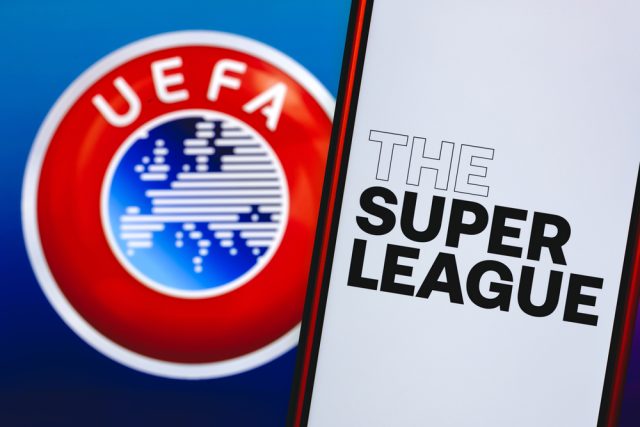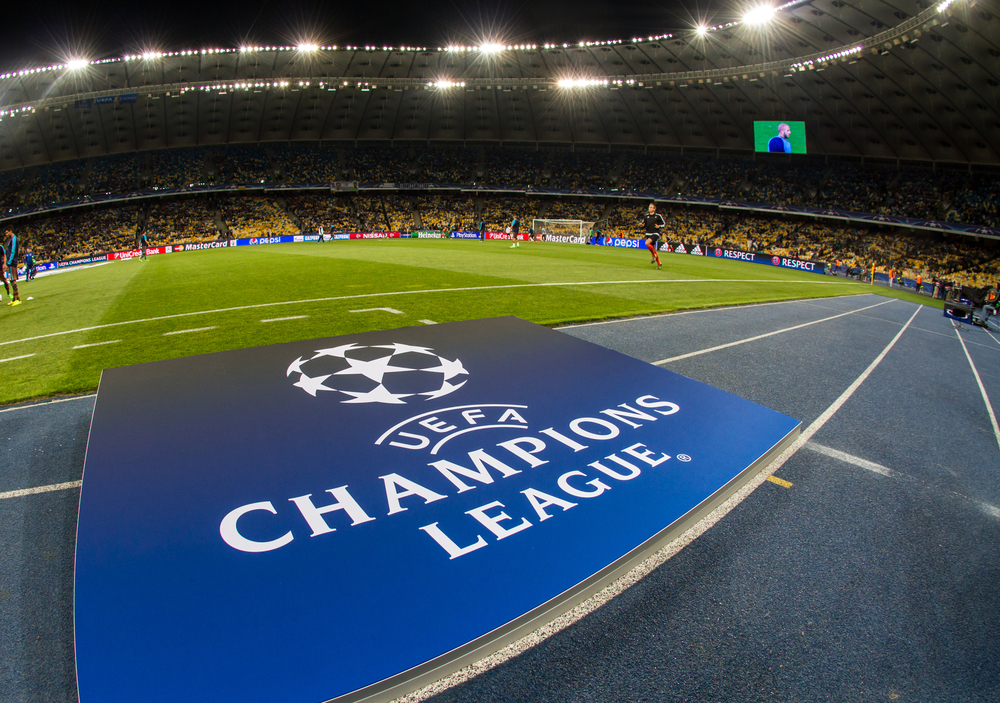
The challenge between UEFA and the club has an economic and political weight
The Super League, a proposed competition that aims to surpass UEFA’s traditional international cups including the Champions League, Europa League, and Conference League, has once again become a topic of discussion in the football world. The Super League has been designed to feature the top clubs from across Europe, and the idea was first introduced in 2019. However, the proposal faced widespread backlash from fans, football associations, and players alike, leading to its postponement. Despite the initial resistance, there are still clubs that remain committed to the Super League and are pushing for its implementation. The potential impact of the Super League on the current football landscape is a highly debated topic, and its future remains uncertain.
After a long and hard-fought legal battle, the dispute between Aleksandr Ceferin, the President of UEFA, and the influential presidents of several football clubs including Florentino Pérez of Real Madrid, Andrea Agnelli of Juventus, Joel Glazer of Manchester United, John W. Henry of Liverpool and Stan Kroenke of Arsenal, was finally resolved with a partial victory for the clubs. On 21 December 2023, the European Court of Justice made a landmark ruling which decreed that it would be against European law to prevent another association from holding club competitions that are in opposition to those organized by UEFA. This ruling effectively ended UEFA’s monopoly on international football by law, paving the way for more competition and diversity in the world of professional football.
The financial aspects of sports are always a topic of interest for many people. In the case of UEFA, the organization collects a yearly amount of 1.8 billion dollars from television rights linked to the Champions League. While this number may seem high, it is significantly lower than the amounts generated by traditional American sports. For example, the value of a single NBA championship is sold at 2.6 billion dollars per year, and the NFL (American Football League) enters into multi-year agreements worth an impressive 110 billion dollars. This is primarily because the NFL’s final game, known as the Super Bowl, attracts a massive number of spectators every year. For instance, 123 million people watched the grand final this year, setting a new record. By understanding the financial aspects of the various sports, we can gain a clearer picture of the strengths and weaknesses of each league.
 The Union of European Football Associations (UEFA) provides a significant chunk of the total revenues between TV rights and sponsors to the clubs, which is a positive aspect on the surface. However, it is essential to understand how much of this contribution ends up in the pockets of individual clubs. For instance, a team in the Champions League groups starts with a commendable amount of 14.8 million euros, which increases as they advance further in the competition. Despite the lucrative nature of the Champions League, the maximum amount that the winning club can take home is limited to around 200 million euros, which is a considerable sum of money. However, it is still limited if we take into consideration that NBA teams, despite having a prize pool much lower than that of the Champions League, have the possibility of signing private agreements with other television broadcasters, collecting similar sums for sponsorship alone.
The Union of European Football Associations (UEFA) provides a significant chunk of the total revenues between TV rights and sponsors to the clubs, which is a positive aspect on the surface. However, it is essential to understand how much of this contribution ends up in the pockets of individual clubs. For instance, a team in the Champions League groups starts with a commendable amount of 14.8 million euros, which increases as they advance further in the competition. Despite the lucrative nature of the Champions League, the maximum amount that the winning club can take home is limited to around 200 million euros, which is a considerable sum of money. However, it is still limited if we take into consideration that NBA teams, despite having a prize pool much lower than that of the Champions League, have the possibility of signing private agreements with other television broadcasters, collecting similar sums for sponsorship alone.
According to the analysis, the Super League has emerged as a result of the dissatisfaction of several top European football clubs. The proposed project envisions the participation of major clubs in an international competition, where they would be involved in a system of promotion and relegation between smaller internal leagues. The proposed format would involve a league-style competition where each club would play against every other team. This would be followed by a series of playoffs and play-outs, resulting in a minimum of 16 matches and a maximum of 19 matches per club, compared to the current minimum of 6 and a maximum of 13 matches.
Moreover, the entire competition would take place on a free and online platform, which would provide ample opportunities for sponsors to occupy advertising space and contribute to a rich prize pool. The proposed format would thereby benefit not only the participating clubs but also the sponsors, providing them with the maximum exposure and return on investment.
UEFA responded in this regard by modifying (for the third time since 1991) the Champions League regulations: goodbye to the 8 groups of 4 teams each, 36 teams will participate and play 8 matches (4 at home and 4 away) against opponents determined by draw, 24 teams will go to the direct elimination phase and the “play-off” round will be introduced for the teams from 9th to 24th place in the rankings, to then proceed in the traditional method of round of 16, quarter-finals, semi-finals and final.
Both solutions are fallacious: reducing the number of overall teams (the Super League would have a maximum of 64 participants across three different leagues, and UEFA would admit as many as 108 clubs to the final phase of its competitions) certainly has the advantage of dividing the ” with fewer teams and therefore increase revenues, but the funds necessary for the development of the football economic sector would be lost in countries with less interest in national championships compared to the “big” ones; on the other hand, the disproportionate increase in clubs and competitions causes a loss of interest because it is clear that there is greater interest on the part of the public in seeing a match between two big clubs rather than one between a big team and a smaller club. “exotic”.
What must remain clear is the difference between European and American sports: in the NBA, in fact, teams per se… do not exist! They are franchises, i.e. sports titles assigned to a particular city that can be assigned to other cities if an interest is expressed in this regard. There are no promotions or relegations, there is no major competition that provides access on sporting merit because the sporting title of the clubs is managed by the federation. In football clearly – and in some ways fortunately – this is not the case and in England alone, there are 20 teams in the national championship, as well as in Spain and Italy, 18 are in Germany, and so on, all of which are owned by individual companies or families which determine, based on investments, sporting results.
The economic impact of football is a crucial aspect that cannot be ignored. The Italian Football Federation, also known as FIGC, generates a staggering turnover of 3.7 billion euros, and the sport as a whole has a significant impact on the Italian GDP, contributing a weight of 10 billion euros. Football has emerged as the most profitable sport globally, with a turnover of 47 billion euros, which is a remarkable feat.
Given these numbers, it is essential to develop a serious policy that can oversee the future of international club competitions. This policy should aim to strike a balance between safeguarding the sporting merit of the clubs and avoiding closed competitions or “franchises.” Additionally, the policy should focus on finding a solution that can enrich the sport, which is the beating heart of Europe, without compromising its essence.
There is a looming risk that Saudi Arabia or the United States may take away this record from Europe. This risk is compounded by the fact that these countries have already attracted some of the biggest names in football, such as Cristiano Ronaldo and Lionel Messi. Therefore, it is imperative to take proactive measures to ensure that football remains a vibrant and thriving sport, not just in Europe but globally.



 Subscribe
Subscribe